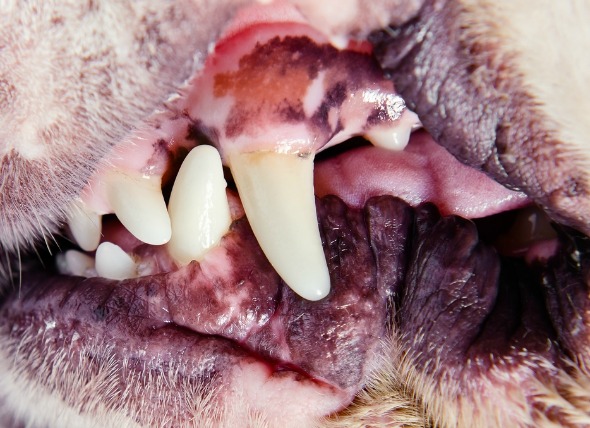

Areas which are prone to flea and tick infestations tend to use various forms of insecticide (e.g., organophosphates and carbamates). But exposure to insecticides -- especially after repated or heavy applications of chemicals -- may be toxic to dogs.
These forms of insecticide poisoning affect both dogs and cats. If you would like to learn more about how it affects cats please visit this page in the PetMD health library.
Dogs exposed to toxic chemicals may not exhibit all of the signs of poisoning. In fact, sometimes insecticides will cause the opposite of these symptoms instead, but there will usually be some indication that the dog is not well.
If you suspect that your dog is unwell because of exposure to insecticides, you will need to remove your dog from the toxic environment, or cease using the insecticides, and seek medical attention for it before the condition becomes dire.
The following are some of the symptoms of toxic poisoning:
Toxic levels of carbamate insecticides like methomyl and carbofuran can cause seizures and respiratory arrest in your dog. Organophosphate toxicity, meanwhile, may lead to chronic anorexia, muscle weakness and muscle twitching which may last for days or even weeks. Someorganophosphate insecticides commonly used include coumaphos, cyothioate, diazinon, fampfhur, fention, phosmet, and tetrachlorvinphos.
This same kind of poisoning can occur with agricultural, lawn and garden insecticide products. Organophosphate types of these products are acephate, chlorpyrifos, diazinon, disulfoton, fonofos, malathion, parathion and terbufos. Carbamate types of these products are carbofuran and methomyl.
Organophosphate and carbamate insecticides inhibit cholinesterases and acetylcholinesterase, essential enzymes in the body. Cholinesterases are enzymes which break down acetylcholine, which is a neurotransmitter.
Consequently, acetylcholine remains attached to the postsynaptic receptors of the neurons causing continuous, unending nervous transmission to nervous tissue, organs and muscles (smooth and skeletal). This causes seizures and shaking.
Toxicity can occur due to the overuse, misuse, or use of multiple cholinesterase-inhibiting insecticides; overexposure to insecticides in the surrounding home environment; or the intentional application of house or yard insecticides on dogs.
If your dog has been diagnosed as having toxic levels of insecticide in its system, your veterinarian will immediately stabilize and decontaminate your pet. Your veterinarian will also administer an antidotal treatment to your dog
You will need to give a thorough history of your dog's health, onset of symptoms, and possible incidents that might have preceded this condition. If you know what type of toxin your pet was exposed to, or you have a sample of it, you should take a sample with you so that your doctor can better treat the poisoning. Your veterinarian will then send a sample of whole blood to a laboratory experienced in handling animal samples. A positive result is confirmed when cholinesterase in the blood is less than 25 percent of normal levels.
Depending on how long it has been since your pet ingested the toxin (if exposure was via ingestion), you veterinarian may induce vomiting for your pet. Your doctor may also wash out your pet’s stomach with a tube (lavage), and then give it activated charcoal to detoxify and neutralize any remaining insecticide. Antidotal treatments specific to the toxin will also be given to your pet. Further treatment may include an oxygen cage if your pet is having trouble breathing, and fluid therapy if your pet has been unable to drink or is anorexic.
Dogs suffering from seizures will be given anti-seizure medication to stop the seizures. If exposure to the toxin came through the skin, your veterinarian will use specialized wash for removing the residue from the hair and skin of your pet.
The sooner your dog is treated after being exposed to organophosphate or carbamate insecticides, the better the prognosis is. Avoid using insecticides -- flea or tick treatments -- on sick or debilitated animals, as it will affect the body more easily because of the weakened immune system.
If your dog needs to be treated for pests while it is recovering, or if it is sick for any other reason, ask your veterinarian to recommend some alternatives to chemical treatments. Organophosphates and carbamates both inhibit cholinesterases enzymes; giving both at the same time is likely a toxic dose of insecticide.
And as always, read the instructions on the insecticide labels before using them.
 Enlarged Gums in Dogs
Gingival Hyperplasia in Dogs
Gingival hyperplasia
Enlarged Gums in Dogs
Gingival Hyperplasia in Dogs
Gingival hyperplasia
 Liver Inflammation (Granulomatous) in Dogs
Granulomatous Hepatitis in Dogs
Hepatitis is a co
Liver Inflammation (Granulomatous) in Dogs
Granulomatous Hepatitis in Dogs
Hepatitis is a co
 Heart Tumors (Myocardial) in Dogs
Myocardial Tumors
Myocardial tumors refer to tumo
Heart Tumors (Myocardial) in Dogs
Myocardial Tumors
Myocardial tumors refer to tumo
 Blood Related Deficiencies in Dogs
Pancytopenia in Dogs
The term pancytopenia does n
Blood Related Deficiencies in Dogs
Pancytopenia in Dogs
The term pancytopenia does n
 Skin Disease, Autoimmune (Pemphigus) in Dogs
Pemphigus in Dogs
Pemphigus is the general design
Skin Disease, Autoimmune (Pemphigus) in Dogs
Pemphigus in Dogs
Pemphigus is the general design
Copyright © 2005-2016 Pet Information All Rights Reserved
Contact us: www162date@outlook.com